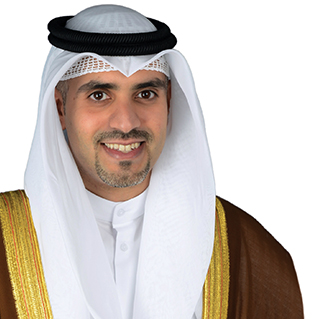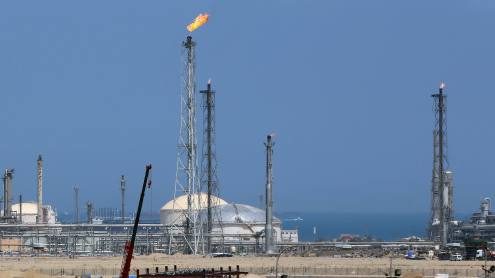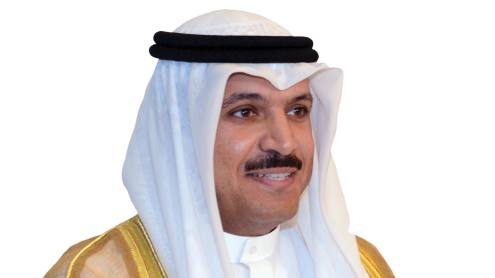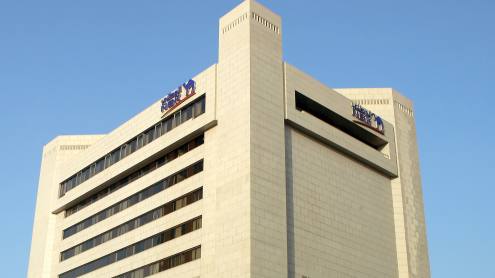Q: To what extent has Kuwait’s investment and business climate improved over the past year? Has investor interest in Kuwait increased in tandem with these improvements?
A: Kuwait’s investment and business climate has steadily progressed, with the government placing this initiative at the core of its reform policy priorities. [This has] led to the establishment of the Permanent Committee for Streamlining Business Environment & Enhancing Competitiveness in the State of Kuwait, headed by the Kuwait Direct Investment Promotion Authority [KDIPA], to coordinate national efforts to improve the business climate with concerned government entities, the private sector and civil society representatives.
[The government’s reforms] are reflected in Kuwait’s position in the World Bank's Ease of Doing Business Index 2018 [DB2018], which witnessed a slight improvement to 96th position in DB2018 from 102 in DB2017, with a rise in its distance to frontier [DTF] score from 59.71 to 61.23 and starting a business DTF score of 77.21 in DB2018, up from 66.24 in DB2017.
This is an indication that the country is moving in the right direction, with relevant reforms put in place to further improve Kuwait’s position in the future – such as establishing a national one-stop shop, Kuwait Business Centre, under the Ministry of Commerce & Industry in co-operation with both KDIPA and the National Fund for SMEs. [This has] led to a reduction in the number of procedures and the number of days, and lowering cost of minimum capital requirement for issuing commercial licences.
Q: What are the main challenges facing foreign investors looking to engage with Kuwait today and how can they be overcome?
A: Based on global executive surveys, such as the one conducted annually by the World Economic Forum, the main reservation is the issue of bureaucracy and red tape. However, Kuwait today has taken the necessary steps to address these concerns. In addition, improvements in its legal and legislative system were addressed with the approval of several new economic laws, addressing protection of competition, intellectual property rights, privatisation, public-private partnerships [PPPs], or amending decades-old laws, such as the commercial companies’ law, commercial agencies, tendering, among others.
It is worth mentioning that there is also a host of new laws awaiting approval, including the insolvency law and the law pertaining to the insurance industry. In line with this, measures have been taken within KDIPA as per Law Number 116 of 2013 provisions stipulated to shorten the duration for issuance of investment licensing approvals to 30 days, setting a transparent and consistent criterion for assessing applications and granting incentives to achieve the intended economic impact, and establishing its one-stop shop department to ensure the best service delivery for investors.
Kuwait benefits from an open and resilient market, which has remained dynamic, cushioned by a lucrative project pipeline
Q: The government of Kuwait wants to position the country as a financial and commercial hub by 2035. In meeting these objectives, how can Kuwait distinguish itself from other regional and global centres striving for similar goals?
A: Kuwait truly distinguishes itself in its aspiration to become a leading financial and commercial hub, in accordance with its National Vision 2035, by harnessing the power of its unique attributes and unleashing its potential based on a vivid history in commerce and a track record of exceptional economic and social achievements. Kuwait benefits from an open and resilient market, which has remained dynamic, cushioned by a lucrative project pipeline and liquidity buffers, despite the impact of the 2007 financial crisis and the drop in oil prices.
Furthermore, efforts such as maintaining a broadly balanced fiscal position by diversifying sources of revenue and rationalising current spending also support Kuwait’s image as a financial hub. The country’s financial system has remained resilient with the sound position of the banking system and a prudent monetary policy reflected in good regulation and supervision.
Other developments pertain to an improving business climate, encouraging PPPs, and embarking on a new agenda of privatisation, to support the private sector’s role in the economy and its contribution to diversifying the productive base of the country, and creating quality jobs for nationals.
Q: What are KDIPA’s priorities for 2018 and 2019?
A: KDIPA is keen to continue its proactive approach, based on its goal to attract value-added direct investments and improve Kuwait’s position in doing business even further. This is conducted through 30 projects that address KDIPA's strategic directions, and contribute to the country's 'NewKuwait' pillars, its commitment to the global sustainable development goals, and [it being] an integral part of the ongoing national programme for economic and fiscal sustainability operated by the Ministry of Finance and integrated within Kuwait's current medium-term second development plan. These projects and initiatives include continuing to implement various focused promotional campaigns, [with a particular focus on] conducting investor-targeting initiatives for generating investment leads, detecting signals and forging partnerships.












